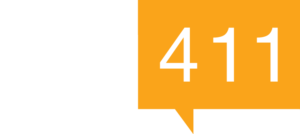In today’s modern workforce, HR professionals must stay ahead of significant compliance changes in compliance to protect their organizations and ensure fair treatment for their workforce. Three pivotal developments—updates to overtime eligibility, the FTC’s ban on non-compete agreements, and preventing AI discrimination in hiring—are reshaping how employers manage their responsibilities. Understanding these interconnected changes is crucial for HR professionals to tackle compliance challenges effectively and support their organization’s strategic goals.
1. Overtime Eligibility and Compensation:
The Biden-Harris administration has introduced a game-changing rule to raise the compensation thresholds for overtime eligibility, protecting millions of lower-paid salaried workers. Starting July 1, 2024, the salary threshold will increase to $43,888 annually and then to $58,656 by January 1, 2025. This ensures that salaried workers earning below these thresholds get fair pay for their long hours. Regular updates to salary thresholds every three years will provide predictability for employers and economic security for workers.
This regulatory change ties into the broader movement toward protecting workers’ rights, which includes the FTC’s ban on non-compete agreements. By eliminating non-compete clauses, the FTC aims to enhance labor market fluidity, allowing workers to seek better opportunities without fear of legal repercussions. HR departments must adjust payroll practices while revisiting contracts and policies to ensure compliance with these new regulations.
2. Increased Workforce Mobility and Negotiating Power:
The FTC’s decision to ban non-compete agreements is a seismic shift in employment practices, enhancing labor market fluidity and creating more job opportunities. This change complements the new overtime eligibility rules by further empowering employees to seek better opportunities. For HR professionals, this means adopting more agile workforce management strategies, as contingent workers gain greater mobility and negotiating power. Employers will need to invest in technologies and practices that facilitate swift adjustments in staffing to maintain operational efficiency.
Additionally, the ban on non-compete agreements necessitates new approaches to safeguarding company information. Employers must explore alternative methods, such as confidentiality agreements or non-disclosure agreements, to protect intellectual property in a more dynamic labor market. This shift toward protecting worker rights and promoting job mobility underscores the importance of HR compliance in maintaining a competitive edge while fostering a positive work environment.
3. Addressing AI Discrimination in Hiring:
As workforce dynamics evolve, HR professionals must also tackle the potential for AI discrimination in hiring processes. Four federal agencies, including the Equal Employment Opportunity Commission (EEOC), are joining forces to prevent AI discrimination that violates Title VII of the Civil Rights Act and the Americans with Disabilities Act (ADA). This initiative aligns with the broader regulatory efforts to protect workers’ rights, as seen in the new overtime rules and the ban on non-compete agreements.
HR professionals must ensure that the AI tools used in hiring processes do not inadvertently discriminate against protected groups. Best practices include informing applicants about the use of AI, using tools that measure job-related traits, and providing accommodations for applicants with disabilities. Regular audits of AI algorithms and transparent documentation of hiring decisions are essential to mitigate legal risks and uphold fair hiring practices.
Embracing Holistic HR Compliance
Staying informed about these regulatory changes and adopting proactive compliance strategies is essential for HR professionals. By ensuring fair compensation, promoting job mobility, and preventing AI discrimination, HR departments can create a more equitable and efficient workplace. The interconnected nature of these compliance updates highlights the need for a holistic approach to managing HR responsibilities in today’s dynamic environment.






